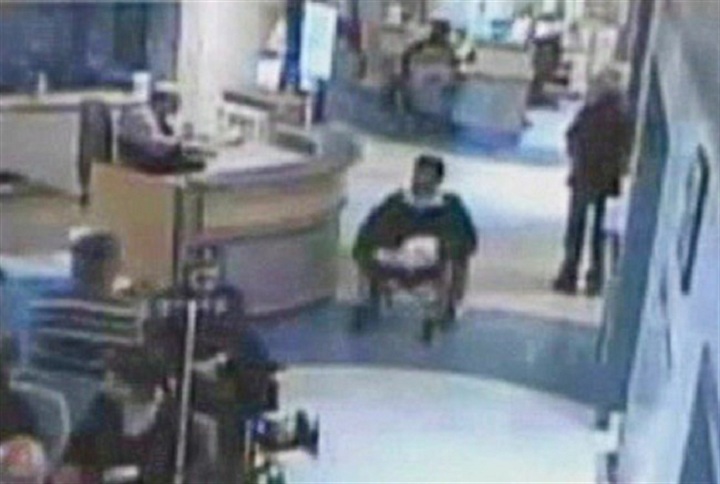WATCH ABOVE: The family of Brian Sinclair is calling the inquest into his 2008 death, in a Winnipeg hospital waiting room, a wasted opportunity. As Jennifer Tryon reports, Sinclair’s family blames racism for the tragic outcome.

WINNIPEG – The family of a man who died during a 34-hour wait in an emergency room says an inquest into his death was “a wasted opportunity” to get at the root causes of racism against aboriginal people in Canada’s health-care system.
Brian Sinclair, a 45-year-old double-amputee, died of a treatable bladder infection while waiting for care six years ago at Winnipeg’s Health Sciences Centre.
The inquest judge said in his final report released Friday that Sinclair “did not have to die,” but Tim Preston rejected the family’s pleas to rule the death a homicide.
Relatives had also asked that he call on the Manitoba government for a public inquiry into aboriginals and their health care, but Preston did not do so.
He did make 63 recommendations aimed primarily at policy reviews at the Winnipeg Regional Health Authority to ensure what happened to Sinclair doesn’t occur again.
WATCH ABOVE: WRHA on Sinclair: “He came to us seeking care and we failed him”
Robert Sinclair said he was disappointed the inquest didn’t deal with racist assumptions about his cousin and instead focused on how the emergency room should be structured.
He suggested justice won’t be done until the health authority deals with the real reasons Brian Sinclair was ignored.
“We know that people failed in doing their duty as care providers,” Sinclair said. “That stuff needs to be addressed. Does that same mentality still exist in that system? You can speak to many aboriginals in this city and they’d tell you that it does.”
READ MORE: Inquest into man’s death in ER concludes
Sinclair went to the ER in September 2008 because of a blocked catheter. The inquest saw security camera footage of him wheeling himself over to the triage desk where he spoke with an aide before wheeling himself into the waiting room.
There, he languished for hours, vomiting and slowly dying. He was never asked if he was waiting for medical care. He was never seen by a triage nurse or registered as a patient.
Some staff testified that they assumed he was drunk or homeless. By the time he was discovered dead, rigor mortis had set in.
The health authority overhauled the emergency department after Sinclair’s death so that triage nurses can better monitor the waiting room. Wristbands for those waiting for care now make them more easily identifiable. Cultural training for staff has also been retooled.
“Brian Sinclair did not have to die, but he did not die in vain,” Preston wrote, pointing to the changes made by the health authority.
WATCH ABOVE: Naive to assume racism doesn’t exist in health care field: Blady
The government and the health authority said Friday they accepted all Preston’s recommendations, including one to ensure that vulnerable people are helped through triage when they first arrive at the emergency room. Others suggest waking people periodically in the waiting room and ensuring that staff intervene when a person is vomiting in the department.
Both Health Minister Sharon Blady and the health authority apologized once again to Sinclair’s family.
“The death of Mr. Brian Sinclair was a preventable tragedy,” Blady said. “It should not have happened at HSC or at any other health facility.
“I want to apologize to Mr. Sinclair’s family. None of what we can do can make up for your loss.”
Blady didn’t completely reject the idea of an inquiry, but did note that the judge did not think it was necessary. The government’s focus is on implementing the inquest’s recommendations, she said.
WATCH ABOVE: Health Minister Sharon Blady confirms Friday that the final report following the death of Brian Sinclair has been received by her ministry
Arlene Wilgosh, CEO of the Winnipeg Regional Health Authority, said it expects anyone seeking treatment to be served regardless of race. But she added racism does exist and it would be naive to expect the health-care system to be immune.
“Our entire system has learned significantly from this,” she said. “People are more aware now, more conscious.”
READ MORE: Click to see the entire inquest report
READ MORE: Appeal Court hears family’s argument over Brian Sinclair ER death



Comments